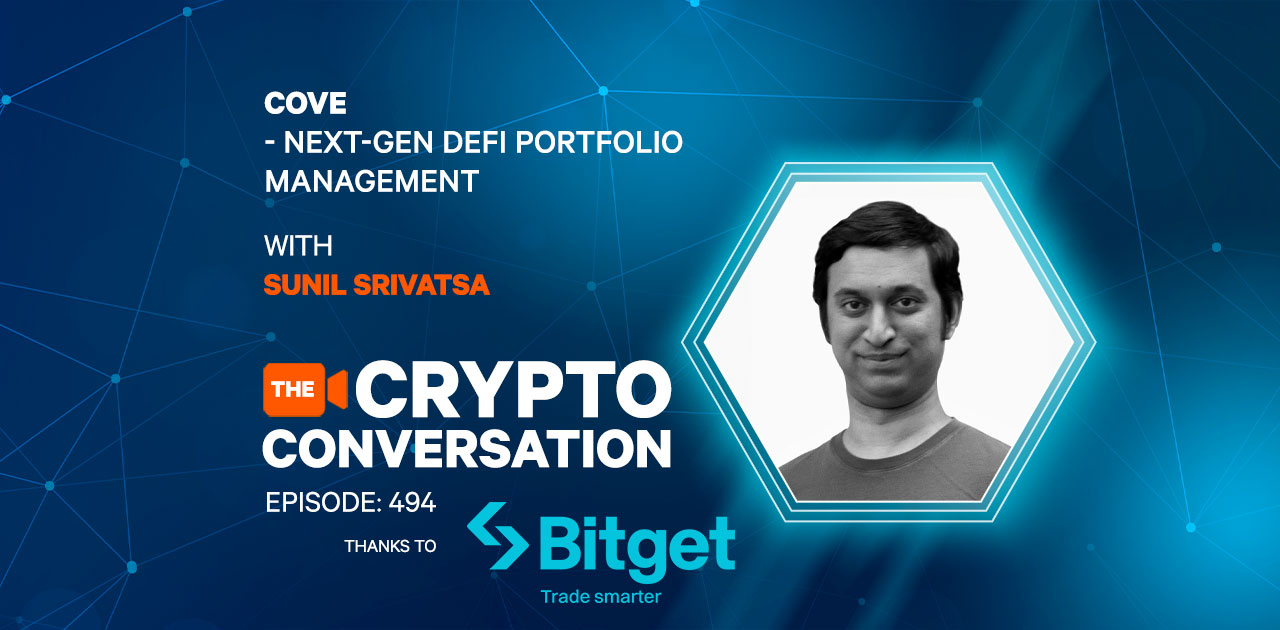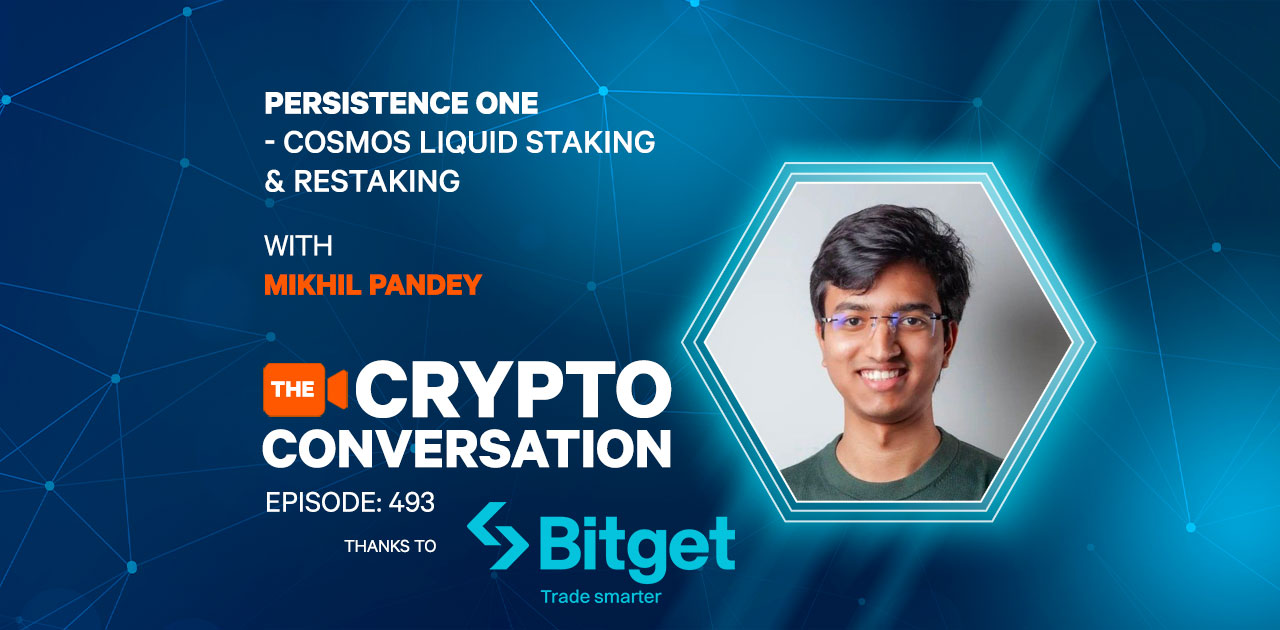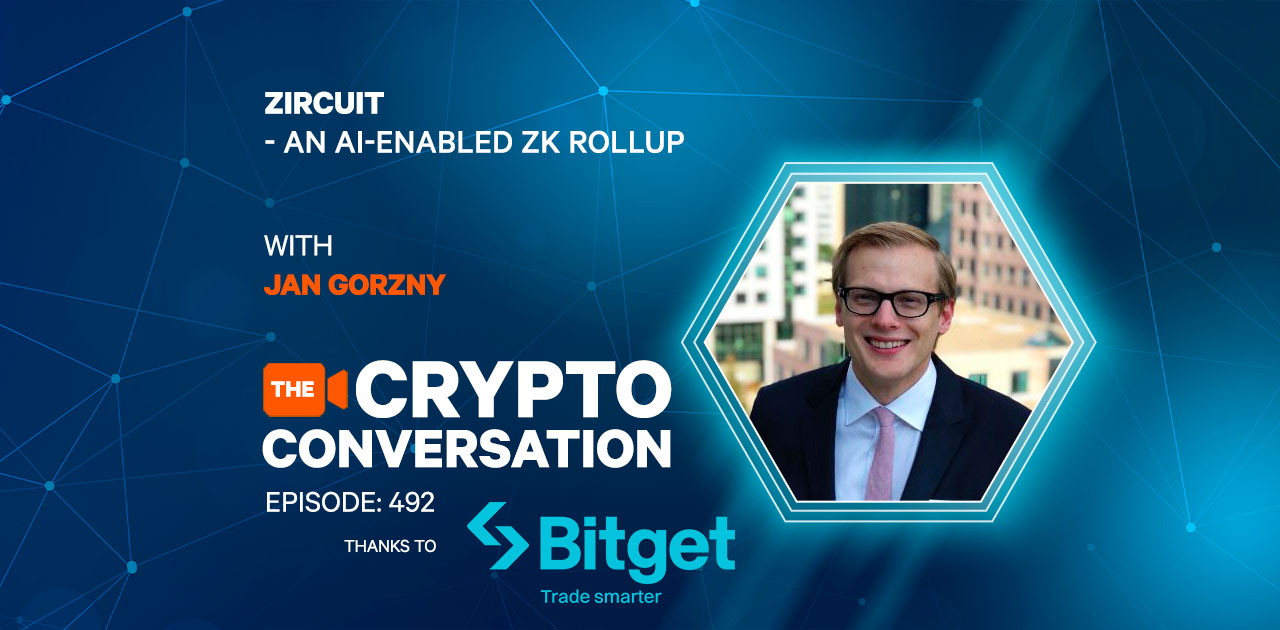Technology transitions with Princeton professor and Obama advisor Ed Felten

Ed Felten, a founder at Offchain Labs and Professor of Computer Science at Princeton who served as Deputy Chief Technology Officer to President Obama, joins Andy for a fascinating, wide-ranging discussion on the potential of smart contracts, Bitcoin’s exponential growth curve, the tensions between technology and public policy, and why blockchain voting is a non-starter.
The link will open a new window. Click the menu and down arrow to download the file.
Podcasts available on
Guest: Ed Felten
After a stint as the Deputy Chief Technology Officer in the Obama Whitehouse, Felten remains passionate about the intersection of technology with public policy. On the Crypto Conversation podcast, he says that technology is transforming the world around us, and it’s the job of policymakers to ensure that government keeps up.
“Technology affects all areas. An example of an important change that’s going on right now is self-driving vehicles. It’s going to change the entire transportation sector, the way we do urban planning, the way we structure our work and our business lives. Really profound changes are coming. Meanwhile, the advanced analysis of genomic data and personalized medicine will soon help people make better health decisions. There’s the question of how do we educate kids and adults to flourish in the future world of citizenship after the big technology transitions that are happening?”
In 2008, Felten and his team of researchers at Princeton University uncovered serious vulnerabilities in the Diebold and Sequoia voting machines that the U.S. electoral system uses. A decade later, Felten says that worries remain.
“The good news is that many more places in the U.S. use more secure voting systems that create systems in which there is a paper record of the vote which the voter examines before casting the vote. Those are the best systems from a security standpoint and the proportion of U.S. voters who use that kind of system continues to go up. The bad news is that there is still a substantial number who are voting on less secure systems.”
In the meantime, says Felten, the nature of the threat to elections has evolved. There are new threats around disinformation and attempts to undermine and manipulate the public discourse or use strategic information leaks to try to discredit disfavored candidates. Felten says that a majority of decision-makers understand there is an issue but getting them to act against one threat in preference to acting against another is one of the challenges from the standpoint of policymakers.
“I can tell you from being in those policymaking rooms in the Obama Administration that the cyber security space is home to a huge array of threats and the need to choose which things to address and which to leave until later is constant. Even though you wish you could address them all now, it’s not always possible and unfortunately, our election systems have been left behind in a lot of places.”
While there is a general skepticism amongst security professionals towards online voting, the problems of maintaining a free and fair electoral system are many and complex. Felten says that blockchain is unlikely to provide the answer.
“I’m skeptical of the use of blockchains for voting in public elections. The reason that public elections are so difficult from a security standpoint is that you have two strong security requirements that are in tension with each other. First is the need to protect the secrecy of every vote. The secret ballot is important to protect against the threat of vote-buying. Secondly, we need to be certain that every vote that is counted matches up with one voter who was authorized to vote and came and voted. So you need to have a strong one to one correspondence between counted votes and voters on the one hand, and on the other hand, the voter and their vote cannot be linkable together. Blockchains are good at public record-keeping and the creation of a public audit log of what happened. That is not as useful for voting as one might hope because of the secret ballot requirement and so, unfortunately, I think we need to look in other places for the bulk of election security.”
Felten says the problem with current smart contracts is the limited capacity on layer one chains. Ethereum records each step of a smart contract execution to its main blockchain, which limits its capacity to run multiple contracts and Dapps.
Felten and his team at Offchain Labs are building a solution that allows most of the activity of managing a smart contract to be done off the main blockchain.
“We do that in such a way that participants get a guarantee that the result is correct,” says Felten. “So the only case where you need to bring the main blockchain into the picture is if there is a dispute among contract participants about what the contract will do. And so we create strong incentives for the participants to agree among themselves.”
The Offchain Labs solution is a product that runs on top of Ethereum and aims to make smart contracts scalable, fast and private. The solution will be made available for use on other blockchains over time says Felton.
“Our core technology is not specific to any one underlying layer one blockchain. We’re building it on Ethereum first because that’s where the biggest developer community is but there’s no technical or fundamental barrier to porting our system on to other layer one chains. We expect to do that over time. Which chains we move to and what the timeline is, will be driven by where we think the developers will be.”
Felton says that he thinks of blockchain as a set of connected technologies and that different pieces of the blockchain technology stack are at different places in the Gartner hype cycle, with some closer to technology maturity than others.
“I think smart contracts are still relatively early,” explains Felton. “There has been a lot of excitement about them, but it’s pretty clear that the technology is not quite ready for a boom, we may go through another trough of disillusionment before smart contracts reach maturity, but in this space, you have to keep your eye on the long term. I feel very confident in the long-term value proposition. These systems provide a type of functionality that is not available through other types of technologies. And that seems to have a lot of value.”
The podcast finishes with another round of crypto hot takes, and Felton becomes the second guest to select Neal Stephenson’s classic Cryptonomicon as their favorite science fiction book.
Supporting Links
Social

Don’t miss out – Find out more today




